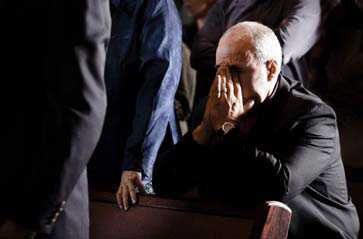In the immortal words of Benjamin Franklin, “the only certain things in this life are death and taxes”. Whilst taxes are an oft considered subject, death is less so. It is often only with the passing of a loved one that the legal framework surrounding death is considered, including the requirements around how the remains of our loved ones are dealt with.
The law governing burial and cremation in New Zealand is the Burial and Cremation Act 1964 (‘the Act’). The Act has remained untouched since it was passed almost 50 years ago. The Law Commission is currently undertaking a wide ranging review of the Act, and has published an Issues Paper entitled “The Legal Framework for Burial and Cremation in New Zealand: A First Principles Review” (‘the Review’). The Review considers the Act and whether the law meets the diverse needs of New Zealanders around burial and cremation, and also more significantly, considers issues not addressed by the Act, such as how family disputes around burial and cremation should be resolved.
The issue of family disputes around burial was thrust into stark relief in the case of Takamore v Clarke [2012] NZSC 116. When James Takamore died suddenly in 2007 a dispute arose between Mr Takamore’s long term partner Denise Clarke and Mr Takamore’s Tuhoe whanau about where he should be buried. As Mr Takamore’s executor and partner, Ms Clarke wanted to bury him in Christchurch where he had lived with her and their two children for 20 years. Mr Takamore’s whanau wanted him buried in the Bay of Plenty with other members of his family. Mr Takamore’s whanau took Mr Takamore’s body and buried him in the Tuhoe urupa. A bitter court battle ensued all the way to the Supreme Court. The Supreme Court found in Ms Clarke’s favour, ordering that she could have Mr Takamore buried in a place of her choosing. The Takamore case highlighted the gaps in the Act where situations like this arise.
Such situations could be avoided with specific provisions enacted to address disputes of this nature. The Review contemplates enacting a new regime to clarify which individual or group should have the authority to make decisions when a serious burial dispute arises within a family, and factors that must be taken into account when making a decision. The Review also contemplates giving the Family Court jurisdiction if a decision is challenged, to make burial orders, require mediation to attempt to resolve the dispute, and to refer cases involving tikanga to the Maori Land Court for resolution.
The Review examines another significant area of the law relating to the establishment and management of cemeteries, including making provision for burial on private land – for example, generational farms. The proposal is that burial on private land be brought under the umbrella of the Resource Management Act 1991, and be subject to resource consent application. The Review sets out various requirements where a resource consent is granted for burial on private land, including the burial to be noted on the Land Information Memorandum and certificate of title, and a covenant required to ensure the land remains undisturbed.

